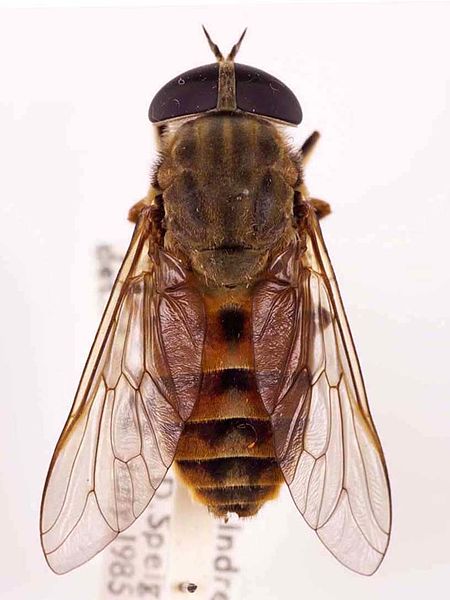With temperatures soaring and occasional thunderstorms gracing the skies, Brits have been urged to remain vigilant against the emergence of a new menace – swarms of ferocious horseflies capable of inflicting severe damage. These bloodsucking insects, known for their ability to “tear flesh apart” and “bite through clothes,” are multiplying at an alarming rate in the perfect breeding conditions provided by the hot weather.
The consequences of a horsefly bite can be dire, ranging from skin infections requiring hospital treatment to triggering anaphylactic shock in individuals with allergies. Alice Duvall, one unfortunate victim, recounted her harrowing experience to The Daily Star, saying, “I was in my mum’s garden yesterday when this dreadful creature landed on my arm, and the bite was excruciating.”
She added, “It left behind a massive red blotch that started swelling immediately. It was a horsefly – they seem to have multiplied out of nowhere in this weather. They are incredibly sneaky too – I didn’t even feel it land on me; I only realized it when it bit me. Unlike wasps or bees, it didn’t buzz or give any warning.”

Another sufferer, Dean Collins from Brighton, shared his painful encounter, stating, “I was in the park with my girlfriend when a horsefly bit my leg. Man, the pain was unbearable, far worse than a wasp sting.”
Expressing the severity of the situation, another victim exclaimed, “I’ve been ravaged by horsefly bites. One of them got infected. It’s been horrific.”
The British Pest Control Association (BPCA) has included the horsefly bite on its list of bites to be avoided, alongside the notorious black widow spider. Issuing a warning, the BPCA described the horsefly as “literally designed to eat a horse,” highlighting the impressive yet agonizing nature of its bite. These bloodthirsty creatures can relentlessly pursue their targets at speeds of approximately 15mph, and their razor-sharp mandibles are capable of tearing flesh apart.
For those unfortunate enough to fall victim to a horsefly bite, the NHS advises promptly dabbing the affected area with antiseptic and covering the wound with an ice pack to prevent infection and reduce swelling.
As Brits continue to bask in the heat and enjoy the outdoors, it is crucial to remain cautious of the growing threat posed by these voracious horseflies. Staying vigilant, taking necessary precautions, and seeking medical attention when required can help minimize the risks associated with their painful and potentially dangerous bites.



